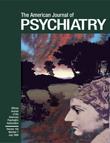Psychoanalytic Explorations in Music: Second Series
This book is the second in a series of contributions on psychoanalysis and music. Meetings under the joint sponsorship of the Academy of the Humanities and Sciences of the City University of New York and the Department of Psychiatry of Mount Sinai School of Medicine produced the original contributions that “form the core of the present volume and largely determine its central themes.” In addition to psychoanalytic and psychiatric contributors, several musicians and music historians provide articles. The book is divided into four sections: 1) Music and Method, which focuses on how psychoanalytic concepts might be applied to music, 2) Affects in Music, 3) Studies of Composers and Compositions, which includes the works of Bach, Mozart, and Wagner, and 4) Historical Essays, which examine what Freud knew about Wagner and Freud’s relationship with the music historian and critic Max Graf, the father of “Little Hans.”
The book raises a number of interesting questions about music. However, the questions are really not so much psychoanalytic ones as they are questions about music asked by psychoanalysts. One discovers in these essays that traditional psychoanalytic approaches and concepts have little to offer in understanding works of musical genius. For example, Gilbert Rose suggests that one “point of entry” for psychoanalysis into music is through the “emotional response” to it. However, psychoanalysis to date has only a rudimentary theory of the affects and has virtually nothing valid to say about positive emotional feelings. Moreover, when Rose speaks of affective reactions to music as “subcortical contributions to cognitive processes,” and when Reiser attempts to connect Wagner’s leitmotivs with “corticolimbic circuits,” these psychoanalysts are not speaking as psychoanalysts. Perhaps this neurologizing represents psychoanalysis in a new key. A danger in this approach is that the subjective, intuitive, and willing self will be relegated to the merely epiphenomenal.
The fact that orthodox psychoanalysis has so little to offer in a formal way about music has its origin in an issue discussed in one of the book’s most interesting articles, “Richard Wagner’s Life and Music: What Freud Knew,” by Cora L. Díaz de Chumaceiro. The author presents extensive evidence that Freud knew a great deal about Wagner, his music, and his views, yet treated Wagner as a virtual persona non grata in his own works. This is important for the development of psychoanalysis because among Wagner’s chief concerns were the origins of musical affect, inspiration, and genius. In explicating these matters, Wagner offered a powerful dream theory that predated by a half a century essential elements of Freud’s dream theory such as the unconscious, condensation, and secondary revision. Díaz de Chumaceiro shows that this theory was almost certainly used by Freud in formulating his own interpretation of dreams. Additionally, Wagner integrated his elaborate music system with contemporaneous philosophical and evolutionary views. It is no wonder that Freud did not want to cite Wagner, which Díaz de Chumaceiro calls an “inexplicable case of omission.” Freud’s failure to address the pivotal psychological and philosophical issues connecting music and affect, defined by a towering genius of the nineteenth century, meant that orthodox psychoanalysis could only touch on music tangentially. The unfortunate result for psychoanalysis was that music became what Feder calls the “unruly stepchild of clinical orthodoxy.” Lacking Wagner’s unique and uniquely expressed perspective of the capacity of music to stir, inspire, and emotionally enrich, the psychoanalyst limits emotional feelings to a litany of negative affects and their defensive derivatives.
It is surprising and refreshing to find in this book substantive and wholly appropriate discussions by several authors of Wagner’s music and theories that are largely free of the gratuitously nasty polemics and reliance on secondary sources that have characterized writings about him since the end of World War II. Psychoanalysis needs to enlarge and deepen its purview of the human condition, especially the emotional aspects. There is no better place to begin than with music, the language par excellence of emotion, and with the extensive writings of arguably its most insightful, prolific, and scholarly genius.
Musical genius, in contrast to being musically adept, is an important distinction omitted in Nass’s discussion of the composer’s experience and in various other chapters. Is it valid to make inferences about the nature of the inspirational and creative processes in, for example, Beethoven, on the basis of interviews of people such as Roger Sessions and other “gifted” individuals? According to Marshall, Bach spoke of his music as revelation. Is having been first in the class in composition at a prestigious modern conservatory or having composed successful Broadway tunes the kind of thing that Bach was referring to in speaking of revelation? Is there not perhaps an affective quantum leap involved in going from the creativity of the guild’s approved-of star, today’s name in lights, to that of one whose music has the sense of timelessness? Wagner expressed this distinction in Die Meistersinger, the only Wagnerian opera Freud admitted to liking.
Psychoanalytic Explorations in Music: Second Series is a complex book encompassing a great many fascinating questions and observations. Because of its implications for a more complete and balanced theory of affect, I unhesitatingly recommend it to the clinically oriented psychiatrist. There is one caveat: many chapters may prove essentially unintelligible to one without some classical musical training. Excerpts from musical scores are central to several of the articles, and fairly extensive discussions of musical theory accompany others.



